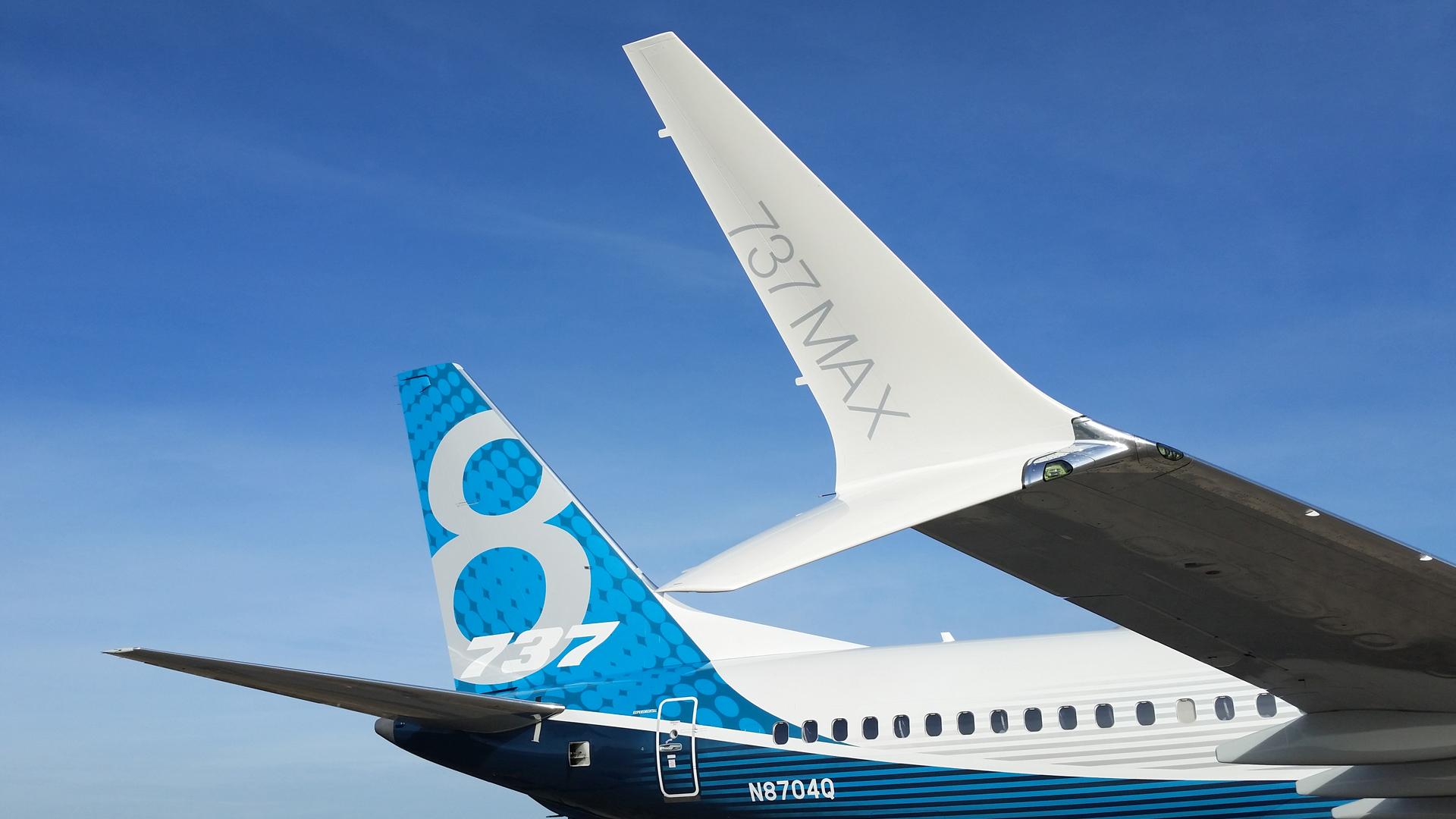
We regret the content of these communications, and apologize to the F.A.A., Congress, our airline customers, and to the flying public for them.
-Boeing
Uh, yeah.
A series of damning internal messages places Boeing in the limelight once again, and not in a good way.
Boeing Employees Mock “Clowns” Who Designed 737 MAX
Congress is investigating the dual crashes of the 737 MAX. As part of its investigation, it requested a paper trail from Boeing to better understand what might have gone wrong. Sifting through the document dump, Congress found evidence of employees ridiculing the design team of the 737 MAX, expressing skepticism over its safety, and efforts to conceal safety concerns from the Federal Aviation Administration (FAA).
Here’s some of the internal messages now unearthed:
- “This airplane is designed by clowns, who are in turn supervised by monkeys.”
- “I still haven’t been forgiven by God for the covering up I did last year.” (from 2018 in reference to interactions with regulators)
- “Would you put your family on a Max simulator trained aircraft? I wouldn’t.” (his colleague responded “No”)
- “It was like dogs watching TV” (explaining a safety presentation Boeing made to the FAA)
Boeing Apologizes
Boeing found itself on the defensive, stating:
“These communications contain provocative language, and, in certain instances, raise questions about Boeing’s interactions with the FAA in connection with the simulator qualification process. Having carefully reviewed the issue, we are confident that all of Boeing’s Max simulators are functioning effectively.
“We regret the content of these communications, and apologize to the F.A.A., Congress, our airline customers, and to the flying public for them. The language used in these communications, and some of the sentiments they express, are inconsistent with Boeing values, and the company is taking appropriate action in response. This will ultimately include disciplinary or other personnel action, once the necessary reviews are completed.”
Employees should be disciplined – the “I was just following orders” excuse is not valid. But it takes a certain toxic culture in order for employees to be so bold in what was apparently company systems or phones in which the messages were exchanged.
FAA: Not A Problem…
The FAA, meanwhile, largely shrugged off the latest revelations. A spokesperson said:
“Upon reviewing the records for the specific simulator mentioned in the documents, the agency determined that piece of equipment has been evaluated and qualified three times in the last six months. Any potential safety deficiencies identified in the documents have been addressed.”
CONCLUSION
I hear the “few bad apples” defense often when it comes to Boeing and I don’t doubt that is the truth, since I know several very decent people who for Boeing. Still, for such messages to be exchanged raises alarm bells. Boeing, more than Congress or any other regulator, should be working overtime to change the culture within.




PR wise it’s getting more and more difficult to see people getting on these planes once they put them back in service.
Pass on flying one of these this year. I plan to give if a full year after re-entry before getting on a Max.
Those messages are good enough for the v victims to sue Boeing for good money. Even its engineers were not certain.
But more importantly some of the senior managers should have pay clawed back.
The don’t doubt the “few bad apples” explanation? I do. It’s good the you know a few good people, indeed I expect there are many good people there. But good poeple doesn’t mean good culture and good products. Boeing has a culture problem, plain and simply. And that comes from the top down.
I think the fact that employees are blaming the problems with the MAX on the engineers rather than on the leadership is proof positive that their culture problem is far from fixed.
Most companies i’ve worked for have had similar types of exchanges, whether warranted or out of personal frustration, as i’d imagine a lot of people on here have experienced as well. I’m sure if Boeing shared internal messages about the 787 they’d have some similar messages pop up.
Some of these seem to be more pointed towards MCAS which makes it a bit more scary though.
These type of comments are frequent when upper management doesn’t listen. I have no understanding for your comment, “ Employees should be disciplined ”. More managers at Boeing need to be fired if they want the company to survive. Corporate culture change starts at the top.
Could not agree more. I think it’s particularly unsettling in a situation like this – where hundreds of people have died – to whip out the “few bad apples” defense, and even more so to discipline employees that were expressing clear concerns, doubt, and/or frustration. Think about how many other employees didn’t speak up at all. Or how many did, but not via company-monitored communications channels that could be turned over to regulators? Clearly we don’t have any metrics that indicate “for X number of people that badmouth Boeing on the company’s email/phone/Slack channel, there are Y more people that agree”. But to know employees felt strongly enough to have these conversations over said media means there’s gotta be way more below the surface.
I don’t disagree, but I don’t think termination of management vs. engineers need be mutually exclusive.
I know this is getting into semantics, but I think something that is key to mention is that while people talk about “a few bad apples”, they often forget the full saying, which is “a few bad apples spoil the bunch”.
And I fully agree with that.
That’s a fair point, but I think it merely further muddies the waters. I read the statement as stating merely a handful of people had reservations or concerns about the plane for whatever reason (personal, professional) because that’s the only empirical evidence we have – in the form of multimedia exchanges. Beyond those “few bad apples”, it’s otherwise inconceivable that far more people shared their concerns. Thus, we have some disgruntled employees maligning an otherwise great program and company.
Having worked with defense contractors – to include Boeing – I stand by my initial assertion that there were likely many more people who had misgivings but didn’t voice them for myriad, unknown reasons. And having read Boeing’s full and public statement about disciplining those involved (reprisal, anyone?), I can see why employees would be tempted to keep quiet.
though, not including Boeing* [insert facepalm emoji]
This is more proof positive that idiocy is not merely confined to D. C. As a retiree from this industry ( both in military and civilian aviation ; both in production and maintenance ) , I can attest to the validity of the employees who used ” provacative ” language . The industry rewards failure , propagates cronyism, and has no regard for anyone not in the ” favored few ” of management. I must admit that the monkey reference is probably grounds for a lawsuit on the part of primates across the globe…
I think there is a corporate culture issue and agree with @ABC that this kind of thing starts by looking at management and whether they are deaf to concerns, encourage timeliness in production over safety, etc etc. If my laptop crashes Im not happy and work sucks, if a plane crashes (or car blows up, or surgical equipment malfunctions, etc) you are playing with lives. As such, the metric for safety should be a lot higher for these companies.
As a side note- If Boeing STILL can’t see their way to how damaging this has been to their bottom line and how much better off they’d have been with just doing the right thing the first time, then the company needs a MASSIVE overhaul. There was a time when I truly believed and often repeated to myself, that “planes are safe”, and the “companies that make them are invested in safety”, and when a plane crashes its a one-off that the FAA and manufacturers world-wide learn from and make things safer the next time around- to have this happen breaks that trust and fundamentally makes it harder for me to get on a Boeing plane. Period.
https://qz.com/1776080/how-the-mcdonnell-douglas-boeing-merger-led-to-the-737-max-crisis/
“quit behaving like a family and become more like a team. If you don’t perform, you don’t stay on the team.”
That was the message the CEO gave Boeing employees after the McDonnell merger.
This tragedy reminds me of the Chernobyl disaster which recently was featured in an HBO show:
https://youtu.be/HOaeTcxu6pw?t=88
The disaster was due to human elements from a dysfunctional culture. Aside from a show trial where 3 executives were thrown into prison, largely nothing was changed with the RBMK reactors for years.
The Boeing board didn’t lay off the CEO up until recently and gave him a 60 million dollar severance package despite 364 lives lost.
American culture has been dysfunctional for quite some time as evident even on this forum where partisan politics explode continuously and multiple factions of the nation are in conflict with the other. Corporations are (short term) profit driven with pockets of self interest (where I previously worked, these were referred to as “silos”)
Globalism which helps to provide corporate executives with individual opportunities for profit and sales growth, also introduce complications into reliability:
https://youtu.be/emKcqBql4rs?t=152
https://www.bloomberg.com/news/articles/2019-06-28/boeing-s-737-max-software-outsourced-to-9-an-hour-engineers
“Increasingly, the iconic American planemaker and its subcontractors have relied on temporary workers making as little as $9 an hour to develop and test software, often from countries lacking a deep background in aerospace — notably India.”
“Boeing’s cultivation of Indian companies appeared to pay other dividends. In recent years, it has won several orders for Indian military and commercial aircraft, such as a $22 billion one in January 2017 to supply SpiceJet Ltd.”
There is little accountability:
https://www.schneier.com/blog/archives/2018/01/security_breach.html
“Security Breaches Don’t Affect Stock Price”
Boeing stock price has only fallen 1/4 due to the tragedy and ongoing inability to get the 737 Max recertified. This price may be justified because there’s a duopoly between Airbus and Boeing for making civilian aircraft. Decreased competition and high demand meant that executives could afford to think that they had guaranteed sales and this has largely turned out to be true.
In my own personal experience, a combination of the following has made many corporate offices, particularly IT, highly toxic: “Agile” methodology (cheap development, buggy code reworked over and over again), “stacked ranking” (continual layoffs and environment of fear), and high unemployment due to a variety of factors since Y2K. High cost of living due to housing, education and healthcare hasn’t helped matters.
This all translates into less quality made products across the board even up to aviation.
This is why you need to take the careful e-mail communication training programs your companies make you take seriously. As a lawyer, it pains me to see that some otherwise intelligent employees could be so reckless with their use of e-mail. You need brilliant engineers, but, boy, can they lack common sense at times.
Recklessness or an inconvenient, albeit colourful, truth?
100% reckless. Whether it is true or not does not matter. Those employees had an obligation to their employer and their employer’s shareholders not to engage in e-mail communication that could harm the value of the company. They almost certainly were trained on the proper use of e-mail and ignored what they were taught. We always tell people before hitting send on an e-mail to think about whether you’d want to see it on the front page of the New York Times. Well, that is essentially what is happening. They all need to be fired. For cause.
I mean this with no disrespect, but what type of lawyer are you, have you passed the state bar, and are you currently practicing?
Hypothetical FAA tweet
“We are not monkeys”